🧠 1. You Decide How You Live: Your life isn’t determined by your past, but by the goals you choose right now, consciously or unconsciously
The book starts with a frustrated young guy visiting a philosopher. He’s angry, bitter, and convinced life sucks.
The philosopher says: “Actually, life is simple. And anyone can be happy and stop caring what people think.”
The youth? He’s not buying it. He’s there to argue.
“Life is simple”? Yeah, right.
The youth says life gets messy once you grow up—jobs, relationships, injustice, all of it.
But the philosopher pushes back: “Life’s not complicated. You make it complicated.”
He explains that we all live in the same world… but we experience it differently based on how we choose to see the world.
Here’s an analogy: Water in a deep well stays around the same temperature year-round. But when we drink it, in the summer it feels cold and in the winter it feels warm. Same water. Different perception. The water doesn’t change—we do.
This philosopher is a disciple of psychologist Alfred Adler. He’s going to explain Adler’s ideas to the youth.
Who was Adler, anyway?
Most people know about Sigmund Freud and Carl Jung.
Alfred Adler was the third giant of psychology—less famous, but arguably way more useful for everyday life. He was part of Freud’s inner circle in Austria, but broke off to start his own thing: Individual Psychology.
His work quietly influenced landmark self-help books like How to Win Friends and Influence People and The 7 Habits of Highly Effective People.
Quick note about the authors
Fumitake Koga was a young Japanese man browsing a bookstore when he came across a book by Ichiro Kishimi that was an introduction to Adlerian psychology. The ideas resonated so deeply with him that it became a turning point in his life.
Ten years later, Koga finally met his mentor Kishimi in person. They had many conversations that became the foundation for this book. In many ways, their relationship mirrors the youth and philosopher you’ll read about in this book.
But let’s get back to the conversation happening in The Courage to Be Disliked.
“People can’t change!”
The young man insists people want to change—but can’t.
He shares a story of his friend who has panic attacks and never leaves the house. The guy shakes, gets chest pain, and is basically stuck inside his house. He assumes there must be some trauma behind it—bad parenting, bullying, or being too coddled.
But the philosopher says that’s determinism—the belief that your past controls your future. Adler rejected that. He said forget the past. Look at what goal that fear is serving. While Freudian psychology focuses on past causes (etiology), Adlerian psychology focuses on present goals (teleology).
Unlike Freud, who blamed everything on your past. Adler said what matters is the goal behind your current behavior. Even if you don’t realize it.
In the case of the shut-in friend, what goal could be driving that fear of going outside?
Maybe his parents pay more attention to him because of his condition, so he feels special at home. But when he goes outside to the larger indifferent world, he becomes a nobody. So his mind generates symptoms of fear to serve his goal. Is he happy or satisfied in this situation? No, but he is fulfilling a goal.
- You’re not controlled by your past—you’re aiming for something in the present, even if it’s unconscious. Instead of asking what caused some behavior, ask what goal that behavior is serving.
- Real change is possible—but it takes courage to take full responsibility. How you see life changes how you experience it.
The psychologist Viktor Frankl survived the Nazi concentration camps of World War 2, where millions of Jewish people like him died. Yet in those camps, he saw people choose not to be hopeless and resentful. Instead, many walked around comforting others and giving away what little food they had.
Frankl observed first-hand that “Everything can be taken from a man but one thing: the last of the human freedoms—to choose one’s attitude in any given set of circumstances, to choose one’s way.”
This led Frankl to create logotherapy, a meaning-based psychotherapy.
Read our summary of Man’s Search For Meaning by Viktor Frankl
🚫 2. Stop Blaming the Past: Your behavior isn’t controlled by what happened to you—you choose what meaning to give it
The philosopher then makes a highly controversial statement: Trauma is not real. At least, not in the way most people think.
Thanks to Freud’s influence, a lot of therapy makes you stuck in the past. They tell you, “You feel bad because of your childhood. It’s not your fault.” Sure… but does that help you move forward?
For example, if you go to the doctor with a cold, do you want a 30-minute lecture about how you caught it? No, you want to feel better. You want the solution.
Adler’s approach is different. He says the past doesn’t control you, including past traumas. Instead, you choose how to interpret your past, and you do so in a way that supports what you want now. We are not just passive victims of our experiences—we actively give them meaning.
You’re always choosing your lifestyle
In Adlerian psychology, “lifestyle” means your personality, worldview, and habits. It’s the whole package—how you think, feel, act.
And according to Adler, you choose your lifestyle. Maybe you chose it when you were little, without realizing it, but you still chose it.
The good news is: you can choose again.
The bad news is: most people don’t ever choose a different lifestyle. Why? Because it’s uncomfortable. Change is risky. It means facing the unknown. Staying the same is easier. It feels safe.
We make excuses to avoid change
We complicate life to protect ourselves. But the philosopher says: We can change, right here, right now. We just don’t want to. People would rather choose unhappiness over the discomfort of taking risks and failing.
For example, a person may say things like, “I don’t have time to write.” But the truth might be, “I’m afraid of failing,” or “I don’t want to be judged.” By not trying, it keeps the fantasy alive.
Now the youth brings up real problems—poverty, bad parents, inequality. The philosopher agrees those things are real. But he says people in those situations still have a choice in how they move forward. Two people may grow up in similar bad circumstance, but their lives turn out completely different.
Adler taught a psychology of use, not a psychology of possession. That means: it isn’t about what you have. It’s about what you do with it.
In other words, don’t think: “I was born with this, so I’m stuck.” Think: “This is what I’ve got—now how am I going to use it?”
- Adler’s view was that our past does not determine our lives and—more controversially—trauma isn’t real. Your current behavior is determined not by what happened to you, but your current goals, which shape what meaning you give to your past experiences.
- You picked your current “lifestyle”—that includes your personality, habits, and mindset. So you can change it. But only if you stop lying to yourself.
A similar book is The Subtle Art of Not Giving a F*ck by Mark Manson. He says most people believe they’ll be happy once they solve all their problems—but that never happens.
What really happens is we trade one set of problems for another. For example, someone might feel lonely because they want love and a family. Then they find it—and suddenly they’re up all night with a crying baby. Life is still hard, but now the struggle feels more meaningful.
As Manson puts it: “True happiness occurs only when you find the problems you enjoy having and enjoy solving.”
😠 3. Question Your Emotions: Emotions aren’t just impulsive reactions—they’re tools we use to get what we want, such as power over others
The youth tells a story: a waiter spilled coffee on his expensive jacket, and he got furious. He started yelling at the waiter. He insists the anger was automatic—he couldn’t help it.
But the philosopher says anger is a tool. We choose to get angry when it serves a purpose—like making someone feel bad, getting control, or avoiding blame.
Don’t believe that? Ever seen someone yelling at their kid… and then pick up the phone and talk all nice? Then hang up and go right back to yelling?
Exactly.
Emotions are not uncontrollable impulses. They’re a strategy.
You’re not a puppet
The kid pushes back. “So emotions aren’t real? We’re just robots? That sounds like nihilism to me.”
“Nope, emotions are real, but they don’t run your life—you do.” Says the philosopher. Just like the past doesn’t run your life.
Adler’s whole message was that people can change because they’re guided by goals, not trapped by what happened before. This is the opposite of a hopeless, “nothing matters” mindset. It puts us back into the driver’s seat of our lives.
How to handle power struggles
Now, not all anger is the same.
- There is anger directed towards personal grudges. This is used to control others. A tell-tale sign: it fades fast.
- Then there is righteous anger over real injustice—like social issues. This is based in reason, so it sticks around.
But most day-to-day anger? It’s just a way to pull people into a power struggle. It’s about people pushing each other’s buttons because they want to win, to dominate, to get revenge. For example, most teenage rebellion is not the result of past trauma, but a way to “get revenge” at people based on current goals.
What should you do when confronted with anger? Don’t take the bait. Step down from the fight. You can say what needs to be said without getting loud or defensive.
You don’t need to “beat” anyone. You just need to stop playing their game. Start by trying to understand, not win.
- Emotions are not forces that control us, but tools we use. We use anger to serve a goal—like gaining control or avoiding blame. Anger, unhappiness, excuses—they all serve a purpose.
- When someone tries to pull you into a power struggle by provoking anger, don’t take the bait. Stay calm, respond clearly, and walk away from the mindset of “you’re either a winner or a loser.”
🧩 4. Look Deeply Into Insecurity: You cling to insecurity because it protects you from the risk of failure or rejection
The youth admits something personal: He doesn’t like himself. He hates how self-conscious and awkward he feels around people. He doesn’t like how he looks in the mirror. And all of this is holding him back in life from forming relationships.
The philosopher says bluntly: “Sounds like not liking yourself is working pretty well for you.”
Why we hold on to our shortcomings
Here’s the thing—what if your “problems” are actually doing you a favor?
He tells the story of a young woman who struggled with extreme blushing. Said she can’t ask out the man she loves because she blushes too much.
But what if the blushing was not the problem? Maybe it actually protected her. Gave her a reason not to try. Which means she doesn’t suffer rejection, failure, heartbreak.
Adler wouldn’t try to “fix” her fear. Instead, he’d encourage her to accept it—and move forward anyway.
(In the end, the man confessed his feelings to her. And the fear of blushing disappeared. Why? She had no more use for it.)
The philosopher asks…
Could your self-hatred be a shield?
Maybe you avoid relationships—not because you’re unworthy—but because you’re so afraid of getting hurt. If you keep telling yourself “I’m not good enough,” you never have to risk rejection. It’s protection. An excuse.
The youth pauses… and agrees. It’s true.
- A lot of your problems are working for you—they give you excuses to avoid risk.
- Hating yourself can be a way to protect you from the pain of rejection.
This connects closely with The Mountain is You by Brianna Wiest, which explores the idea of self-sabotage—that we are often our own worst enemy. She explains that many habits that hold us back, like procrastination, distraction, or overindulging, aren’t just random—they’re meeting our hidden emotional needs.
🔗 5. Know That People = Problems: Most of your emotional struggles come from how you relate to others
Adler made another bold claim: “All problems are people problems.”
Sounds extreme—but think about it.
- Feeling lonely? You need other people to feel that way.
- Rejection? Only happens when someone turns you down.
- Anxiety, embarrassment, jealousy? All come from how you think others see you.
If you were truly alone on a deserted island, you wouldn’t care how you looked, what you said, or whether you were “good enough.”
No people = no judgment, no rejection, no pressure.
No people, no problems
The youth pushes back—“But what about the big stuff? Like freedom? Meaning?”
The philosopher says even those depend on people. We want freedom from something or for something—usually in relation to others. And we search for meaning by how we contribute, how we connect, or how we compare ourselves to the world around us.
For example: A teenager says he just wants freedom. But what he really means is, “I want my parents to stop controlling me.” Or someone says they’re searching for meaning—what they often mean is, “I want to matter to someone.”
It all comes back to people.
- Every emotional struggle we have involves other people, said Adler. This means by learning to see our relationships with other people through a new lens, we can fix most of our problems.
😔 6. Reject False Comparison: Constantly comparing yourself to others creates a fake feeling of inferiority.
The youth says he feels inferior constantly. He’s insecure about his job, his accomplishments, even his pimply face. He talks about his older brother, who always outperformed him in everything. He’s been stuck in that comparison for years.
What is a feeling of inferiority? It’s the sense that you’re not as good as other people.
Alfred Adler was the first to use the term in this context.
The philosopher shares his own story. He used to feel inferior because of his height—he’s just 5’1″ tall. Thought being short made him less of a man.
Until one day, a friend told him that his smaller size was less intimidating, it made people feel more at ease around him. That changed how he saw it.
The point?
Inferiority isn’t about facts—it’s about how you interpret the facts.
It’s not about being short, or broke, or unpopular. It’s about what you think those things mean.
When inferiority becomes an excuse
Everyone feels inferior sometimes. That’s normal. Adler says this drives people to improve, grow, and reach their potential. That’s the healthy side.
But when it becomes too much, it turns into an inferiority complex. That’s when you stop trying—because you’ve convinced yourself that success is impossible.
“I can’t succeed because I’m not well-educated.” — That’s not a reason, it’s a convenient excuse to give up.
Fake superiority
To cover up insecurity, people often fake superiority.
- They brag.
- They name-drop.
- They boast about past wins.
And the weirdest part? Some people actually brag about their struggles. Why? Because being “the person who’s had it hard” makes them feel special. It also provides control over other people, who are less likely to challenge those who highlight their apparent weakness.
Stop competing with everyone
The philosopher says: Stop comparing yourself to other people. Start comparing yourself to who you were yesterday.
You’re not behind. You’re not failing. You’re just stuck in a fake competition that doesn’t exist.
Adler’s view is simple: We’re not on a ladder. We’re on a flat field. No one’s above you. No one’s below you. We’re just walking our own paths.
The youth says that sounds like an old guy who gave up on winning.
From competitors to comrades
But the philosopher says the competitive mindset—always needing to be better than someone else—is what causes the feeling of inferiority in the first place.
That’s the reason you feel bad about yourself all the time. You think if you’re not winning, you’re losing. You start viewing everyone as the enemy. So you never feel safe. Never feel enough. Never rest.
But here’s the truth: Most people aren’t judging you. They’re too busy with their own lives.
And once you stop seeing others as rivals and start seeing them as comrades, something changes. You’ll feel better.
- Feelings of inferiority aren’t based on facts—they come from how we interpret those facts. Use it as motivation to improve, not as an excuse to give up.
- Stop comparing yourself to others. Compare yourself to who you were yesterday. A competitive mindset creates constant anxiety. Trying to look superior is usually just insecurity in disguise. Seeing others as allies—not threats—builds real confidence.
In 12 Rules for Life by Jordan Peterson, Rule 4 is “Compare yourself to who you were yesterday, not to who someone else is today.” Our inner critic thinks about success in a very black-and-white way—it often overlooks the fact that we all have different starting points and that success comes in many different forms.
🧭 7. Face Your Life Tasks: Most of what we call “problems” are just excuses to avoid the stuff that actually matters
According to Adler, there are two big goals in life:
- Become independent
- Contribute to society
From those, we get three core “life tasks”:
- Work – doing something useful.
- Friendship – connecting with others.
- Love – building intimacy and trust.
These aren’t optional. Ignore those, and your life starts falling apart.
The Real Problem
So what actually stops us from handling the important stuff in life—like work, relationships, and love?
According to Adler, it’s not ability or circumstance. It’s always problems with other people.
And here’s the hard truth: We often invent excuses to avoid facing those life tasks.
For example, if someone is overly afraid of conflict or rejection, they might avoid relationships by focusing on little annoyances—like saying someone chews too loudly. But it’s not really about the chewing. It’s a way to justify staying distant.
Same in love. If deep down you want to leave someone, suddenly every little thing they do annoys you—even how they breathe. It’s not about them. It’s about the choice you’ve already made.
Even things like career struggles or becoming a shut-in often come down to fear of failure. Rejections feel like proof that you’re not good enough—so you avoid trying altogether.
Adler calls this the life-lie: Using excuses to avoid the hard work of living.
The fix? Courage. And later in the book, we’ll look at practical ways to build it.
- Life has three major “tasks”: work, friendship, and love—and most problems come from avoiding them.
- We often make excuses or blame others to escape facing our life tasks. That’s called living a life-lie.
🙅♂️ 8. Don’t Live for Recognition: Freedom means being okay with not being liked by everyone—and living your own life anyway
The youth shares more of his story. His parents always wanted him to take over the family printing business, just like his brother did. Instead, he became a university librarian. But for years, he followed the path they wanted. When they told him to go to a certain school, he obeyed.
Why? Because deep down, he wanted their approval.
We all want freedom. But what does that really mean? The main thing we feel trapped by is the pressure to live up to other people’s expectations—especially those closest to us.
Don’t live for recognition.
Adler’s most important advice is this: Don’t live for recognition. Stop trying to make everyone like you.
The youth pushes back. “But that’s normal. Everyone wants to be seen, praised…”
Yeah, that’s the problem. That’s how people get locked into miserable lives—trying to earn gold stars from people who don’t even understand them.
If you live for praise, or to avoid criticism, you’re not living your life. You’re living theirs.
But won’t this break society?
The youth thinks this sounds cold—like a selfish, anti-social way of living. Wouldn’t it just lead to isolation?
But the philosopher explains: Most people aren’t unhappy because they’re too selfish. They’re suffering because they’ve spent their entire lives trying to do what other people want—parents, teachers, society.
It’s not about being selfish because you’re letting others live freely too. You’re not trying to intervene into their lives. They don’t live to meet your expectations and you don’t live to meet theirs.
Accept being disliked
The philosopher says: “To be truly free, you have to accept being disliked by other people.”
Not on purpose. Not because you’re a jerk. But because when you finally live by your values—someone’s not gonna like it. And that’s okay.
If everyone likes you, you’re not being honest. You’re being fake.
The philosopher shares a personal story. His father hit him a few times growing up. For years, he blamed that for their broken relationship. That’s the old way of thinking—blame the past.
But then started thinking the Adler way. He asked himself: “What if our relationship is broken… because I want to keep it that way?”
When he changed his goal, the relationship changed. Not because his dad became a saint… But because the philosopher stopped using the past as an excuse. The power to fix it was in his hands all along.
- Living for approval means you’re living someone else’s life. Real freedom is choosing your values and living by them—even if others don’t like it. The real prison isn’t your past—it’s your fear of being disliked.
🧱 9. The Separation of Tasks: You’re not responsible for other people’s choices—and don’t let them control yours
Adler’s next big idea is called “the separation of tasks.” It’s one of the most practical tools in this whole book.
Here’s how it works: Each person is responsible for their own tasks in life. You have your tasks. Other people have their tasks. And you shouldn’t interfere with tasks that aren’t yours.
Sounds simple. But it changes everything.
Example: Kid won’t study
The youth brings up a common situation: “What if your child refuses to study? Shouldn’t you make them?” He says it’s the parent’s job to get their kids to study. His parents didn’t let him eat dinner until he was done his schoolwork.
The youth argues: kids don’t know what’s good for them. It’s the parent’s responsibility to guide them.
But the philosopher says: “Studying is the child’s task. Not yours.” Why? Because the child is the one who will experience the results—good or bad.
The youth objects. He says only adults who have no real stake in our future spout advice that feels good right now like “do what you love.” But our parents care. They actually have a stake in our future. That’s why they give us unwelcome advice like: “Pick a stable career. Get into this good school.”
The philosopher pushes back. Most parents push their kids for selfish reasons, because they want to look like “good parents” to others. That’s their goal—not necessarily what’s best for the kid.
Provide encouragement, not intervention
There’s a big difference between intervention and what Adler called “encouragement.”
- Intervention is directly telling people “you should do this or that.”
- Encouragement is allowing them to face their own tasks, while knowing your assistance is available if needed. With encouragement, they gain confidence in themselves and their abilities.
The philosopher says: be available, offer support—but don’t force it. Let them know you’re there to help. But wait until they ask. That’s real support—not control.
Parents who constantly scold or interfere? They think they’re being helpful—but they actually push their kids further away. Trying to control others just creates resistance.
In Adlerian psychology, even counselors don’t “change” their clients. They help create the right environment. The rest is up to the individual. It’s like that old saying: that you can lead a horse to water, but you can’t make him drink.
Simplify your life with one question
Here’s how you simplify your whole life:
Ask yourself, “Whose task is this?”
If it’s theirs? Back off.
If it’s yours? Handle it.
- Your family judging your career? That’s their task.
- Your coworker doesn’t like you? Their task.
- Your boss never gives you credit? Still their task.
Your life gets better the moment you stop waiting for everyone else to change first.
- You are only responsible for your own tasks—not other people’s. Draw the boundary between your task and theirs.
- Trying to control others creates resistance and distance. You can care about someone without taking over their decisions. Offer support, but wait until they ask for help.
🤝 10. Create Horizontal Relationships: True connection comes from practicing gratitude—not praise, control, or judgment
If I asked you whether children should be taught through criticism or praise, you would probably say praise. Why? Because this allows kids to learn while feeling good, rather than afraid.
Adler felt differently. He said “don’t praise others” (and don’t judge them either).
Here the philosopher drops another surprising idea that sounds totally backwards at first:
“Praise doesn’t build confidence. It actually kills it.”
Why?
Because praise creates a “vertical relationship”—where one person is “above” the other. They’re the judge. You’re the performer.
Getting praised feels good. But guess what? The more you rely on praise, the more you start living by someone else’s values, not your own.
So how do you encourage someone?
Not with judgment—not even positive judgment. Instead, use gratitude.
You say thank you.
Not “good job.” Not “you’re amazing.” Just: “Thanks. That helped.”
It sounds simple. But that shift—from judgment to gratitude—is everything. It tells people they matter just for showing up and contributing. And that feeling of being useful gives people real confidence. It gives them courage.
What if I’m not useful?
The youth pushes back again. He says, “So if someone isn’t useful, they’re worthless?”
The youth confesses that his work—reshelving books at the library—often feels repetitive and useless. “Anyone could do it with some basic training,” he says.
The philosopher explains more. Usefulness isn’t about doing some flashy, heroic thing. Sometimes, just being there is enough.
For example, if someone you loved was badly hurt, you’d still be thankful just to have them alive. This kind of gratitude starts at zero—as if the person never existed at all—and only goes up from there. Often we lack gratitude because we start with an idealized image of how a person “should” be, then subtract points when they don’t measure up to that image.
Building “horizontal relationships”
Most people go through life with “vertical relationships,” where one person is higher than another:
- There are people above them (bosses, parents, teachers)
- And people below them (kids, employees, “less successful” friends)
This leads to all kinds of problems.
In horizontal relationships, no one’s above or below. Even if someone’s older or more experienced, they’re not better. Even if they’re your boss, you can respectfully push back, share your own ideas, and take responsibility. That’s what a real adult relationship looks like.
- Praise creates a hierarchy. Gratitude builds confidence. You don’t need to be impressive to be valuable. Just existing is a contribution.
- Build horizontal relationships where you can stand shoulder-to-shoulder. You’re not better than anyone—and no one’s better than you.
🌍 11. Grow Community Feeling: Belonging doesn’t come from being liked—it comes from making a contribution
When it comes to relationships, the goal isn’t to push people away—it’s to untangle the unhealthy parts. That’s where community feeling comes in.
Let’s talk about what “community” meant to Alfred Adler. Most of us think about our school, work, and neighbourhood. But Adler’s view is wider:
Your community includes everyone—friends, strangers, even the universe itself.
For example, buying a loaf of bread connects you to farmers, bakers, truck drivers. You’re part of that chain. Even if you’re not doing anything flashy, you still belong.
This perspective makes all the hard stuff in our lives easier to handle, including dealing with bad teachers or tough family situations. Because now you know: this one person doesn’t define your place in the world. You belong to something much bigger.
The philosopher says now we’re getting closer to the real issue: happiness. And to get there, we need community feeling—built on three pillars:
1. Self-acceptance
This is not fake positivity. It’s not lying to yourself. Self-acceptance is just being okay with who you are right now—and then taking a step forward. For example, you got a 50% on your test? Don’t say, “I’m actually a genius.” Say, “I got 50%. That’s where I am. What’s my next step?”
Part of this is what Adler called affirmative resignation—accepting what you can’t change, and making the most of what you can. Like the Serenity Prayer says: “God, grant me the serenity to accept the things I cannot change. The courage to change what I can. And the wisdom to know the difference.”
2. Confidence in others
You’ve got two choices in life: Start by trusting people… Or start by doubting them.
If you choose doubt, good luck ever having a real relationship. You’ll turn into a paranoid wreck. Reading too much into texts. Searching for hidden tones in phone calls. Thinking everyone’s out to betray you.
Trust people first. Yeah, some will disappoint you. That’s their problem.
How do you build this kind of trust? By separating your tasks: If someone betrays your trust, that’s their task. Your task is to live with courage—and keep trusting.
3. Contribution to others
You want to feel like you matter? Go do something that helps someone else.
Doesn’t have to be big. Doesn’t have to be flashy.
Just be useful.
True belonging doesn’t come from trying to be liked by everyone—it comes from thinking: “What can I give?”
The youth complains: “So I’m only helping others to feel better about me? Isn’t that selfishness in disguise?”
The philosopher says no—it’s not hypocrisy. When someone appreciates what you do, it transforms the task. When your work matters to someone—even something as boring as washing dishes—it changes how you feel about the work and about yourself.
Feeling that your contribution matters is what gives life purpose. That’s not fake. That’s earned self-worth.
- Community feeling is about shifting from “what can I get?” to “what can I give?” You already belong and contribute—just by existing. Start from there.
- Self-acceptance means facing reality and taking one step forward.
- Confidence in others means trusting first—not after they’ve “earned it.”
- Contribution to others gives you real self-worth—and a reason to keep going.
😊 12. Stop Trying to Be Special: Real happiness comes not from everyone liking you, but from having the courage to be ordinary, here and now
Society teaches us that happiness comes from some massive achievement. Like launching a business. Winning awards. Changing the world. Getting applause. Being special.
The youth argues that happiness must come from doing something really big—like being the next Albert Einstein or Martin Luther King Jr.
Nope. The philosopher says here’s what it actually is:
Happiness is that quiet feeling your life is useful to others. That’s it.
It’s why people chase recognition. They want proof they matter. But the truth is: you don’t need external praise. Once you feel inside that you’re contributing, that’s enough. That’s real freedom—being happy without needing applause.
Being special is overrated. It’s not about being seen—it’s about having a sense of purpose inside that makes you feel connected to something bigger. When you have this “community feeling,” you stop needing others to validate you.
You don’t need to be famous for your life to have meaning. You just need to show up, contribute, and live your life with intention. Real strength comes from the courage to be ordinary.
Life is always now
The philosopher makes a final point: Stop living like your life hasn’t started yet.
Too many people see life as a mountain—they think happiness is at the top. So everything else becomes “just the climb.” But that means you’re minimizing almost your entire life as “just getting there.”
Another modern philosopher named Alan Watts told us that life is NOT a journey, but more like dancing. You don’t dance to get somewhere. You dance to dance.
Alan Watts said: “We thought of life by analogy with a journey, a pilgrimage, which had a serious purpose at the end, and the thing was to get to that end, success or whatever it is, maybe heaven after you’re dead. But we missed the point the whole way along. It was a musical thing and you were supposed to sing or to dance while the music was being played.”
You can plan. You can have goals. But don’t live like now is just a warm-up for “real life” later. This moment, this day, is real life.
Meaning isn’t found—it’s chosen
Adler believed life has no one-size-fits-all meaning. You don’t “discover” the meaning of life, in some book or telescope. You choose it.
The philosopher’s grandfather was badly burned in the war. He could have decided the world was a cruel, painful place. But because of his injury people were especially kind to him. And he chose to see the world as a wonderful place.
That’s the real secret: You choose your meaning.
You choose what your pain means. You choose what your life is about. Your guiding star, the philosopher says, should be contribution. With that, it won’t matter who likes you or who doesn’t. You’ll know you’re living right, for something bigger than yourself.
The youth finally gets it. Walks out the door smiling. Snow is softly falling. Whole world looks new. He’s not “fixed.” He’s just finally living his own life.
- Happiness comes from contribution—not recognition. You don’t need to be special. You need the courage to be ordinary and useful to others.
- Life isn’t a mountain to climb—it’s a dance to enjoy right now. The meaning of life isn’t something you find. It’s something you choose. And you should always choose contribution.
- Think of one unhelpful habit you do. Ask yourself: “What goal could this behavior be serving right now?” Could you choose a different goal?
- Reframe the past. Pick a painful memory. Could you choose to give it a more useful meaning?
- Study your emotions. When you feel anger rise, pause and ask, “What am I trying to gain right now?”
- Write down one insecurity and then answer: “What fear does this protect me from?”
- Each night, write down one way you improved (even slightly) from the day before—no comparisons to others.
- Face your life tasks. Write down one thing you’ve been avoiding, then take the smallest possible step toward it.
- Separate the tasks. Think of one relationship where you’re carrying someone else’s burden. Ask: “Whose task is this?” Then put it down.
- Use gratitude, not praise. Next time someone helps you, skip the praise. Just say, “Thank you. That really helped.” Watch how it builds connection.
- Make a quiet contribution. Do one small thing today that helps someone without expecting any recognition.
What does Adler say shapes your life?
Your personality type
Your past trauma
Your present goals
Your childhood memories
What is anger often used for?
To express pain
To gain control
To relieve stress
To punish others
Why do we hold onto our insecurities?
To protect ourselves from failure
To get sympathy from others
To improve ourselves
To feel better
What makes real freedom possible?
Constant praise
Getting recognition
Being isolated
Being disliked
What does happiness come from?
Being admired
Having big goals
Being useful
Finishing your tasks


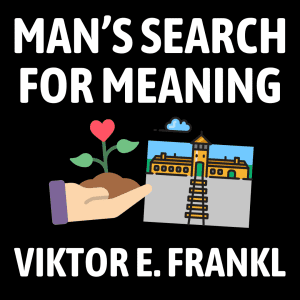
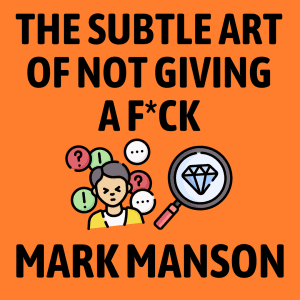


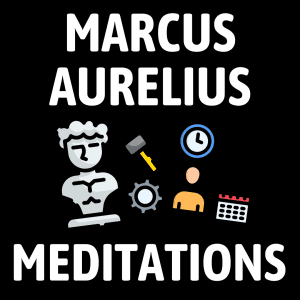
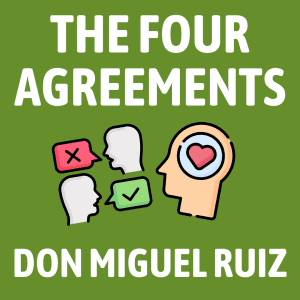

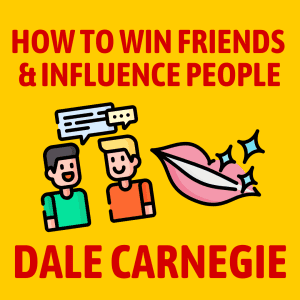
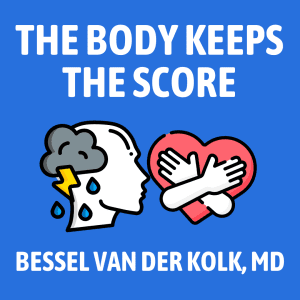
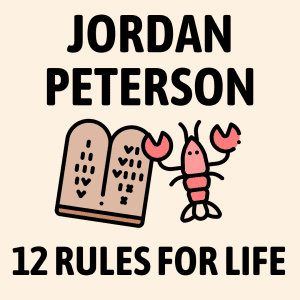
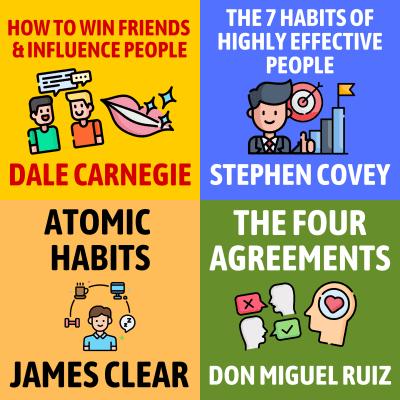


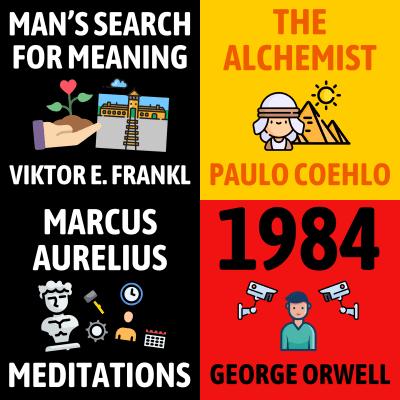
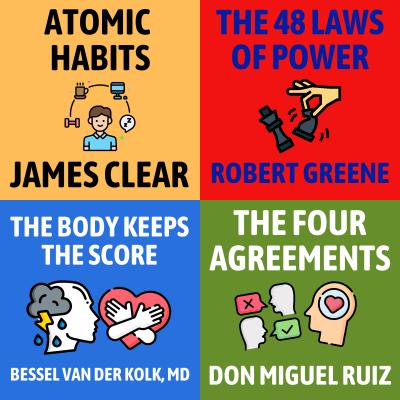
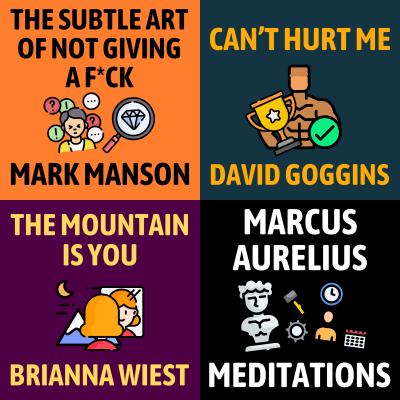

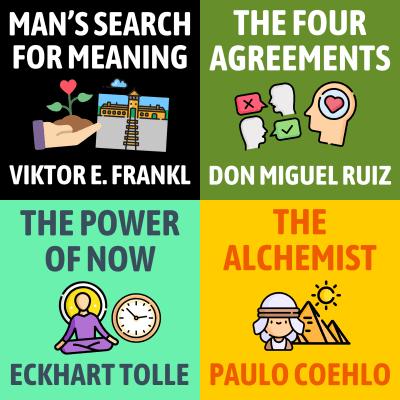


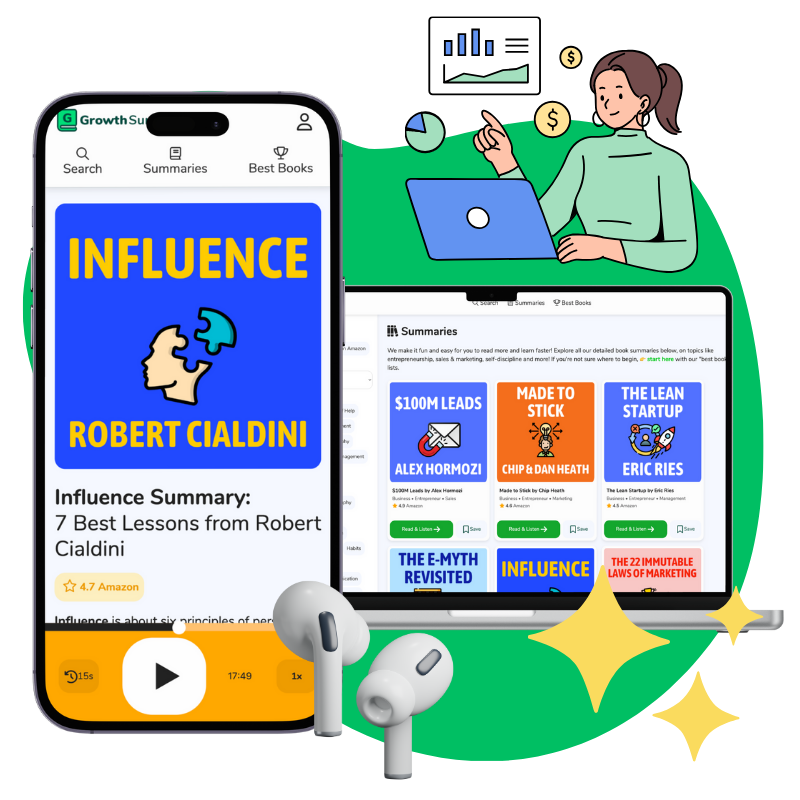
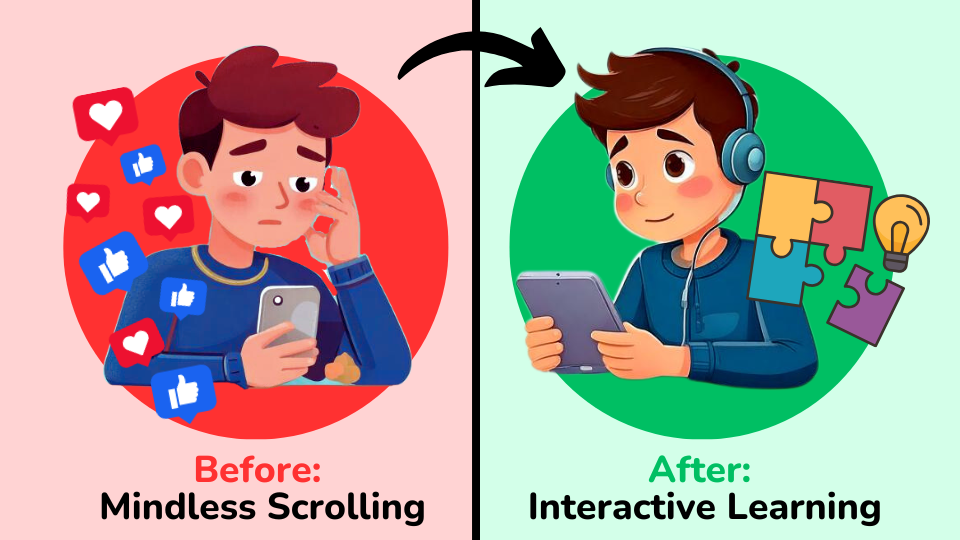








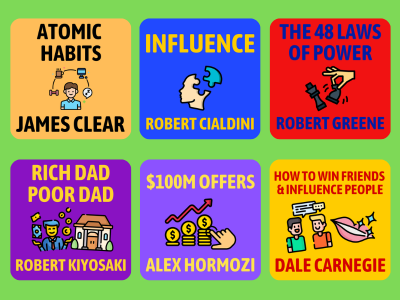
Community Notes